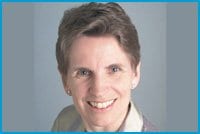Activists say that if new provincial education minister Kathleen Wynne — the first lesbian cabinet minister in Ontario history — wants to help gay and lesbian students, she’ll have to find more money.
“The very first thing she should do is fix the funding formula,” says Tim McCaskell, who sits on the Toronto District School Board’s (TDSB) equity policy advisory committee. “In a system that’s bankrupt, the idea that you’re going to do something good for gay and lesbian kids is ridiculous. Everyone’s attention is literally on how do we keep these buildings from falling apart.
“Gay and lesbian kids are going to suffer and they’re going to suffer more because they’re vulnerable.”
Jeffrey White, a teacher in the TDSB’s Triangle Program for queer students who feel uncomfortable in regular schools, agrees.
He says problems faced by the TDSB, which may have to cut $84 million to meet provincial requirements for a balanced budget, are felt by his own program.
“The board asked us to increase our complement this year from 18 students to 30 and didn’t give us any additional money.”
The Triangle Program has had to use tables and chairs provided by the Metropolitan Community Church Of Toronto, which also provides a home for the program in its basement.
McCaskell, who chairs the Triangle Program Community Council, says the province should earmark money to set up area-specific programs for queer students.
“The kind of stuff we do in Toronto, that’s not going to work for the Peterborough board. You can’t ship kids five hours in those big rural boards. The ministry needs to provide funds for local issues focussing on crucial equity issues. That allows progressive people there to tell the ministry what works.”
But both White and McCaskell say the ministry also needs to improve the general curriculum and training.
“I think that our curriculum needs to be changed so that GLBTQ [gay, lesbian, bisexual, trans, queer] issues are mandated, so that they’re actually studied in our schools,” says White.
Claire Nobbs, program coordinator for Supporting Our Youth, says the province also needs to provide more funding for student-led programs like gay/straight alliances. But she says the most important thing is to address the root causes, starting with housing, a major problem for the many queer youths who are forced out of their family homes onto the streets.
“The bottom line, first and foremost, is housing. If you don’t have adequate, stable housing, everything falls apart: your health, employment opportunities and, of course, your ability to study.”
McCaskell says Wynne’s appointment is a hopeful sign.
“She is a million times more in tune with gay and lesbian issues than anyone we’ve ever had before. She is a dyke and a mother.
“But she’s under constraints. She is part of a government that has not taken bold initiatives.”
McCaskell says the fact the TDSB’s funding problems were an issue in the recent Parkdale-High Park byelection, won by the NDP, is a good omen.
“We caught their attention. They know that they’re going to be in deep trouble in a number of Toronto ridings if they haven’t done something.”


 Why you can trust Xtra
Why you can trust Xtra


